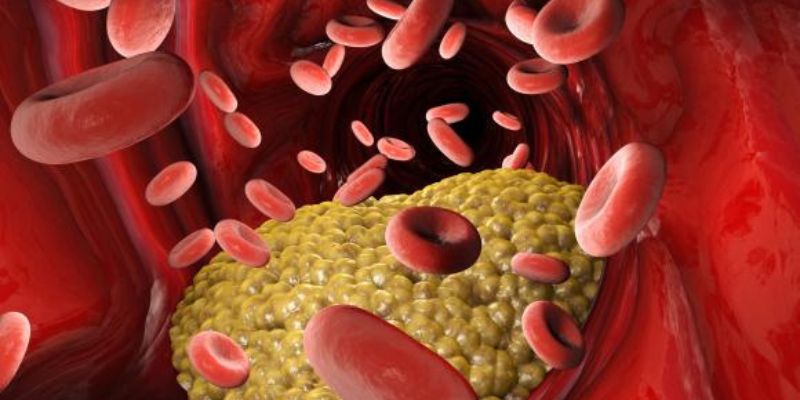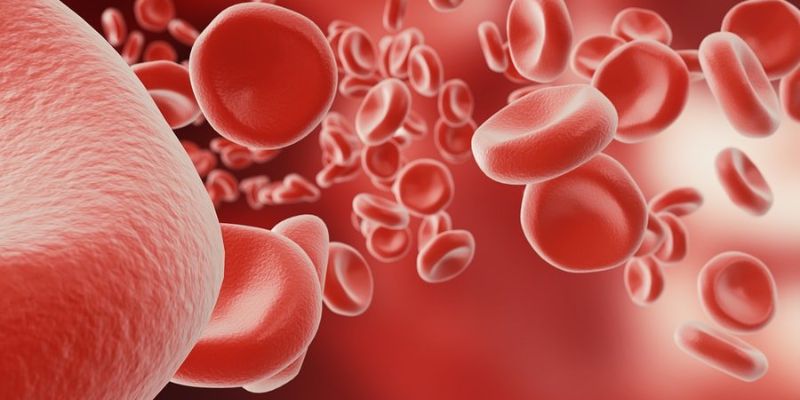Do you perceive what your triglyceride levels are? Triglycerides are fat in your blood; elevated levels can increase your risk for certain medical conditions.
Knowing what the normal and healthy triglyceride range is can help you better understand your overall heart health risks.
In this blog post, we'll scrutinize what normal triglyceride levels are, how they're determined, and offer tips on ways to keep them in check. Read on to learn all about managing your triglycerides and keeping yourself healthy!
What Are Triglycerides?

Triglycerides are a type of fat found in your blood. They provide your body with energy and play an important role in storing and using energy.
Triglycerides come from two sources: the food you eat and those made in your liver.
What Is the Normal Range for Triglyceride Levels?
The normal range for triglyceride levels is typically less than 150 milligrams per deciliter (mg/dL). If your triglyceride levels are higher than this, you may be at an increased risk of certain medical conditions.
That’s why monitoring your triglyceride levels is important so you can understand your overall heart health risks.
How Are Triglyceride Levels Determined?

Your doctor will perform a blood test called a lipid panel or lipoprotein profile to measure your triglyceride levels.
This test will help determine the amount of fat circulating in your bloodstream and give insight into your overall health and risk factors for certain diseases.
Signs of High Triglyceride Levels and What to Do?
High triglyceride levels can significantly increase your risk of certain medical conditions like heart disease. Here are some common signs and symptoms of elevated triglycerides:
• High Blood Pressure: High blood pressure is one of the leading causes of cardiovascular disease. If you have consistently high blood pressure, it may be a sign that your triglyceride levels are too high.
• Abdominal Weight Gain: Excess abdominal fat is a major indicator of unhealthy triglyceride levels. If you’re struggling to lose weight in your midsection, it could indicate that your triglycerides are out of balance.
• Fatigue: Feeling tired can always signal that something isn’t quite right. If you’re having difficulty managing your energy levels, it could be a sign that your triglyceride levels are too high.
• Excess Sugar Intake: Too much sugar in your diet can increase your triglycerides, so pay attention to how much sugar you consume.
Tips for Keeping Triglycerides in Check
1. Exercise: Regular exercise is one of the best ways to help keep your triglyceride levels in check. Aim for at least 30 minutes of moderate physical activity most days of the week.
2. Eat a Healthy Diet: Eating a diet low in saturated fats and cholesterol can help lower triglyceride levels. Choose lean proteins, whole grain carbs, fruits, vegetables, and healthy fats such as olive oil and avocados.
3. Limit Alcohol Intake: Excessive alcohol consumption can raise triglyceride levels, so limiting your daily or weekly consumption is important. Try to stick to no more than two drinks per day for men and one drink per day for women.
4. Quit Smoking: If you smoke, quitting is one of the best ways to lower your triglyceride levels and reduce your risk for various health conditions.
5. Lose Weight: Being overweight or obese can increase triglyceride levels, so losing weight can help get them in check. Talk to your doctor about developing a healthy eating plan and exercise routine that will work best for you.
How to Lower Your Triglyceride Levels?
1. Eating Healthy
- The most important thing you can do to keep your triglyceride levels in check is to eat a healthy diet low in saturated and trans fats, high in fiber, and plenty of fruits and vegetables.
Incorporate omega-3 fatty acids into your meals, as these help reduce triglycerides.
Reduce or avoid added sugars, processed foods, and refined carbohydrates that can increase triglyceride levels.
2. Exercising Regularly
- Regular physical activity helps decrease triglyceride levels by increasing the calories you burn each day. Aim for at least 30 minutes of moderate-intensity daily exercise, such as walking, jogging, biking, swimming, or any other aerobic activity.
Strength training also helps reduce triglyceride levels, so incorporate weight lifting a few times weekly.
3. Reducing Stress
- Stress can increase your body’s production of certain hormones, leading to higher triglyceride levels in the blood.
Taking time for yourself and engaging in activities that help you relax, such as yoga or meditation, can be beneficial for reducing Stress and thus keeping your triglyceride levels under control.
4. Avoiding Alcohol
- Excessive alcohol consumption has been linked to elevated triglyceride levels, so it is important to be mindful of how much you drink if you are trying to keep your heart health in check.
The recommended limit is one drink for women and two for men per day, so remain mindful of this guideline to help keep your triglyceride levels within the healthy range.
How Do Triglyceride Levels Compare with Cholesterol Levels?
Your triglyceride levels are often measured alongside another form of fat in your blood—your cholesterol levels. Cholesterol is divided into HDL (high-density lipoprotein) and LDL (low-density lipoprotein).
Both types of cholesterol play a role in heart health, but HDL is considered “good” cholesterol because it carries excess fat away from the bloodstream, while LDL—also known as “bad” cholesterol—can increase the risk for heart disease if it accumulates in the arteries.
Triglycerides, on the other hand, are not directly associated with heart health. Instead, they provide energy to your cells and can be stored in your body for later use.
When you have a blood test to measure your cholesterol and triglyceride levels, your doctor or lab technician will typically record three numbers: total cholesterol, HDL cholesterol, and triglycerides.
Keeping these numbers in their healthy ranges is important for optimal heart health. Elevated triglycerides may indicate that you must make lifestyle changes, such as eating healthier foods and exercising regularly.
Supplements That May Help Balance Your Triglyceride Levels
In addition to making lifestyle changes, some natural supplements may help balance your triglyceride levels. Omega-3 fatty acids and niacin are two supplements that research has shown can reduce cholesterol and triglycerides in the body.
However, you should consult your doctor before taking any supplements as they may interact with other medications or existing medical conditions.
FAQs
What is the danger level of triglycerides?
High triglyceride levels can increase your risk of stroke, heart disease, and other serious medical conditions. It's important to keep your levels healthy to protect your overall health.
How are triglyceride levels tested?
A simple blood test can measure the amount of triglycerides in your bloodstream. Your doctor will be able to provide you with more information about having this done.
What is the normal range for triglycerides?
In general, it's considered healthy to have triglyceride levels below 150 mg/dL. However, different people may have different optimal ranges their healthcare provider recommends.
Conclusion
High triglycerides can increase your risk for medical conditions, so it's important to know the normal range and how to keep them in check. Eating a balanced diet, exercising regularly, and managing stress are all key steps to keeping your triglycerides healthy. These tips help maintain your heart health and reduce your risk of serious medical issues.




